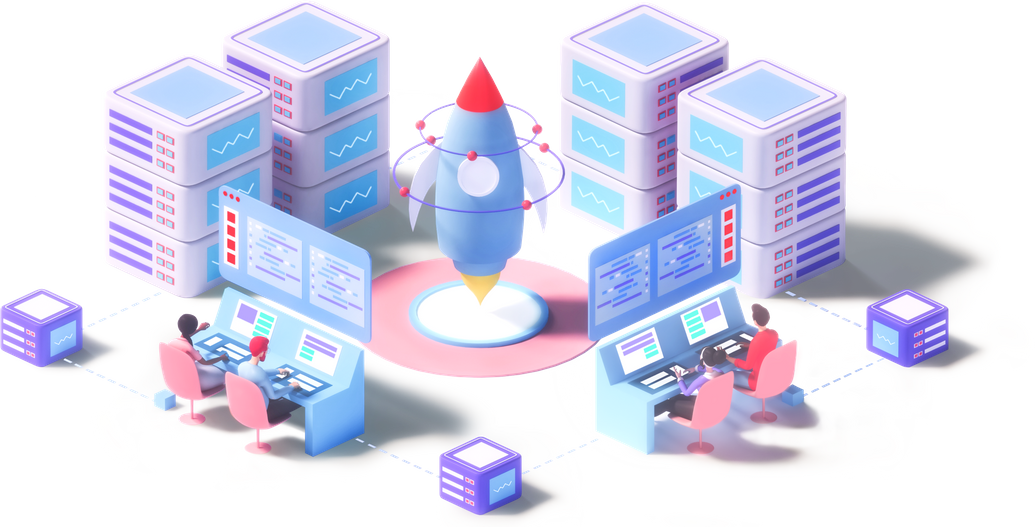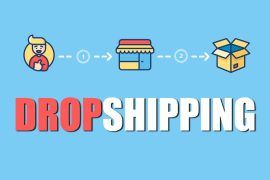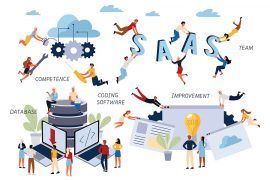In recent years, mobile application development software has grown in popularity. Studies reveal that 21% of millennials open an app more than 50 times every day. While the popularity of apps cannot be denied, the sheer number of these custom software programs makes it difficult to observe results when developing your own. With over 2.2 million applications available for download on the Apple App Store and another 2.8 million on the Google Play Store, it’s understandable that your app will need to stand out if you want a large number of people to download it. It all boils down to app development in the end.
Table of Contents
What is Application Development?

The process of developing, building, and implementing software applications is known as application development. It can be done by major corporations with large project teams or by a single freelance developer. Application development is the process of creating an application and follows a defined methodology in most cases. There are numerous elements that influence application development. You must examine the project’s scale, the precise needs, how much the customer will want to change things, the size of the development team, the development team’s experience, and the project’s deadline.
Application development platforms provide developers with a single environment that includes all of the tools they need to create software. Some platforms support a wide range of application types (e.g., mobile, embedded, etc.), while others specialize in single-use cases. Companies that need software applications supply platforms like these to their developers so they may write, manage, and deploy apps. This procedure is normally carried out exclusively within a development or IT department, although it can also take place throughout a small firm or on an individual basis. Integrated development environments (IDEs) and application development platforms have comparable characteristics, but application development platforms are more comprehensive in providing developers with a complete set of development tools.
Highlights of an Application Management Software
A product must meet the following criteria to be considered for the Application Development Platforms category:
- Using a text editor or a graphical user interface, provide software development capabilities (GUI)
- Allow compiling, debugging, version control, platform-specific code suggestions, and code deployment via a platform’s application programming interface (API).
- Have front-end development tools for creating UI/UX, back-end development tools for data services, or both.
- A software developer’s kit should include additional tools for communication, debugging, and code analysis.
Advantages of using an Application Management Software
Innovation
Application software aids in the management of all applications inside an organization. This helps application development teams to devote more time to innovative ideas, allowing them to make more crucial business choices and deliver support more quickly and efficiently.
Barriers between teams are also broken down by this revolutionary tool, which stimulates teamwork, new collaborative ideas, and a fluid flow of information.
Improved efficiency
Maintenance costs and intervals are reduced with app development software because stakeholders can synchronize design, development, and testing efforts. Application software improves the availability and performance of important programs, which improves corporate performance and revenue streams.
Enhanced Productivity
The monthly amount of man-hours spent in huddles is considerably reduced thanks to application management software. This results in a huge increase in IT staff productivity since they are now able to service twice as many business users. There’s no need to hire expensive, outsourced expertise. One of the most significant issues for firms with a compartmentalized organizational structure and spiral-shaped complexity is an increased reliance on pricey experts.
However, with application development software, you can get the most out of your investment in talents, procedures, and technology.
Reduces total ownership costs
Application development software increases flexibility by shortening the time it takes to develop and deploy apps. Furthermore, an end-user-centric approach to app administration allows IT organizations to improve efficiency. Because fewer IT workers are required to manage problems, operating costs are reduced as the number of problems and escalations is reduced.
Platform sturdiness
Another advantage of using app development software is its ability to speed up development by facilitating integration and connecting services. Potential issues can be resolved more quickly with DevOps, greater cooperation, and knowledge sharing among the Service Desk, Application Operations, and Application Development.
Recurring issues are resolved definitively, eliminating the need for further escalation. This frees up the Application Development team to focus solely on development.
Top 3 Application Development Software
Firebase
Google’s Firebase is a simple mobile application development platform that helps in rapid application development. Users may easily speed up and grow their app development without having to worry about infrastructure. The platform may be used to create, release, and monitor apps, as well as increase engagement. The Firebase Cloud Firestore functionality allows customers to design, protect, and deploy serverless apps on a worldwide scale. They can also sync data between online and offline devices, save app data to the cloud, and retrieve expressive queries. The platform includes a real-time database, remote configurations, cloud messaging, hosting, authentication, and other features to help speed up app development. Within the particular, there is a range of extensions such as resizing photos, invoicing and payments using Stripe, operating subscriptions, and so forth.
Features of Firebase
- A/B Testing: Free
- Analytics: Free
- App Distribution: Free
- App Indexing: Free
- Phone Auth – US, Canada, and India: 10k/month
- Phone Auth – All other countries: 10k/month
- Other Authentication services
- Cloud Firestore Stored data: 1 GiB total
- Cloud Firestore Network egress: 10GiB/month
- Cloud Firestore Document writes: 20K/day
- Cloud Firestore Document reads: 50K/day
- Cloud Firestore Document deletes: 20K/day
- Cloud Functions Invocations : 125K/month
- Cloud Functions GB-seconds : 40K/month
- Cloud Functions CPU-seconds : 40K/month
- Cloud Functions Outbound networking: Google services only. And much more
Pricing
There are three pricing models available, Free, custom, and quotation-based.
Retool
Retool is a platform that gives customers the tools they need to create internal products for their companies and save time. The software enables users to quickly create front-ends for any type of datastore. It can connect to SQL databases, including MySQL, BigQuery, Postgres, MS SQL, and Redshift, as well as other APIs like Salesforce and Google Sheets. Users can use the platform to connect their data sources and create queries and logic in Javascript or SQL. While organizing and connecting their elements into an app, one can connect their questions and logic to prebuilt components such as text inputs, tables, and buttons. The program creates apps that are simple to distribute to stakeholders.
Features of Retool
- Create an infinite number of apps (creator view only)
- Create apps using any database or API.
- Query Library allows you to create, share, and reuse queries.
- Up to 5 modules (component groups) can be reused between apps.
Pricing
Free Subscription and Custom plan starting from $10/ Team are available.
Microsoft Azure
Microsoft Azure is a complete cloud computing platform that allows app developers to create web-based applications using several programming languages like ASP.NET, Java, PHP, Python, and Javascript. Azure allows you to swiftly design, deploy, and manage applications across Microsoft’s global data centers. It also has the ability to incorporate source code into hosted apps. It includes development tools for creating and modifying code and syntax, debugging, and managing development frameworks, among other things, to enable developers to create data-driven intelligent programs quickly. Azure also aids in the development of virtual machines, smart client apps, and XML web services.
Features of Microsoft Azure
- Virtual Machines
- Azure SQL Database
- App Service
- Azure Cosmos DB
- PlayFab
- Azure Kubernetes Service (AKS)
- Azure Functions
- Azure Cognitive Services
- Azure Cost Management and Billing
Pricing
Azure has a quotation based pricing Model
Conclusion
By creating applications, you can acquire access to almost any type of web platform. Develop apps to reach markets in far-flung locales via Google Play, Blackberry, Apple App Store, Symbian, and other internet marketplaces, as well as social networking websites such as Facebook, Myspace, and Twitter, among others. App development has extra unique capabilities, such as discount codes, function evaluation, and force announcements, in addition to the ability to send data to clients. In fact, some application software even lets you create apps for free Your visitors will receive a response in the shortest amount of time possible, allowing you to evaluate the advertising technique. Ordinary businesses such as law firms, restaurants, pubs, realtors, non-profit organizations, and a slew of others have been founded to profit from the system.
Overall, App development is an essential task if you want to make a name for your company in the industry, and one must leverage it to its full potential.






